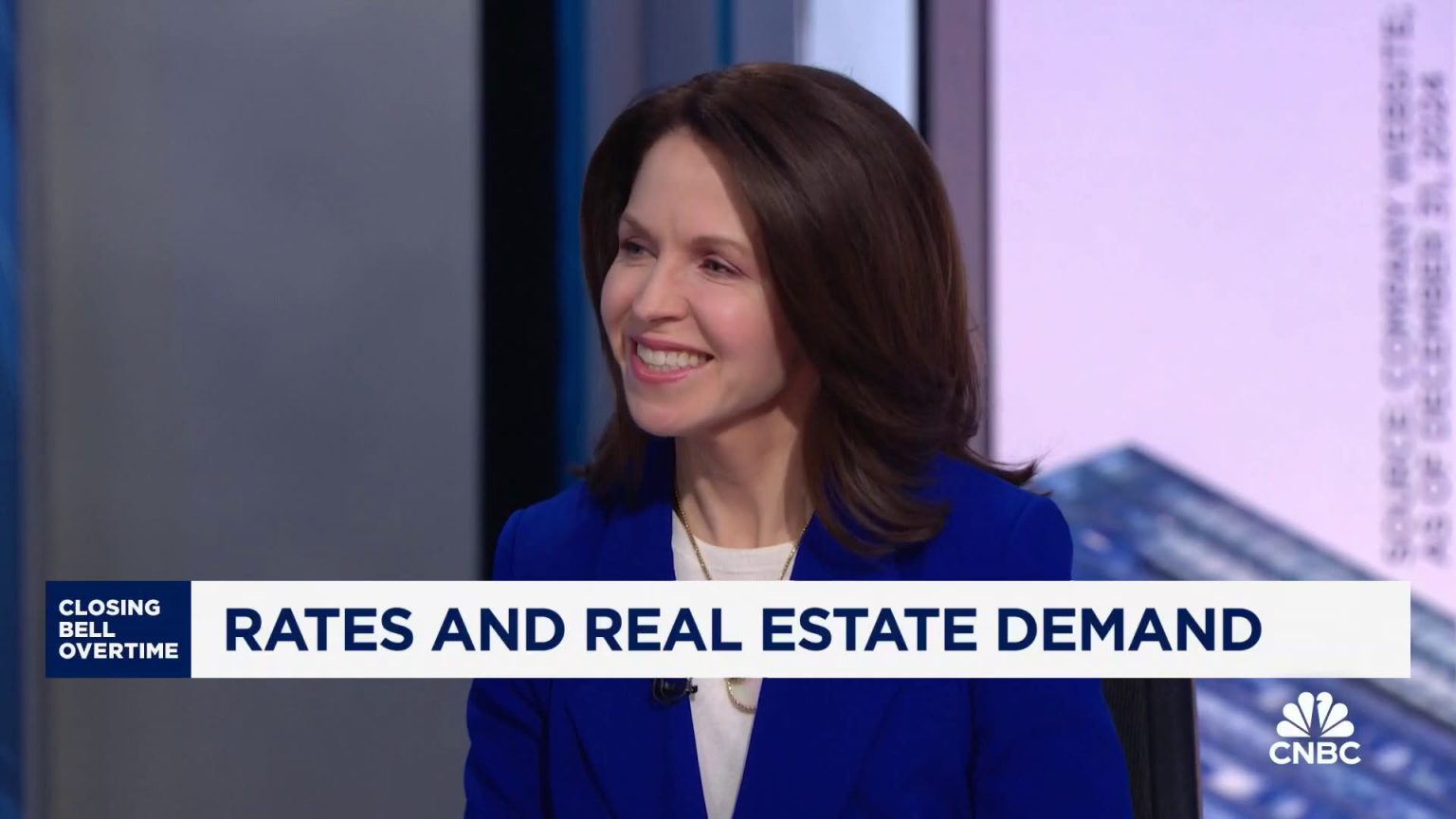Kathleen McCarthy on the State of Real Estate: Insights and Outlook
Introduction: A Conversation with Kathleen McCarthy
Kathleen McCarthy, Global Co-Head of Real Estate at Blackstone, recently joined CNBC’s Closing Bell Overtime to discuss the current state of the real estate market, the impact of the bond market, and other critical factors shaping the industry. As one of the most influential figures in real estate, McCarthy’s insights provide valuable perspective for investors, developers, and market watchers alike. Her conversation offered a nuanced view of the challenges and opportunities in today’s dynamic real estate landscape.
The Bond Market and Its Impact on Real Estate
One of the key topics McCarthy addressed was the relationship between the bond market and real estate. She emphasized that the bond market plays a crucial role in shaping real estate investment decisions. As interest rates have risen over the past year, the cost of capital for real estate investments has increased, which has had a cooling effect on the market. McCarthy noted that while higher interest rates present challenges, they also create opportunities for investors who are able to adapt and find value in the market.
McCarthy pointed out that the bond market’s volatility has led to a reevaluation of risk in real estate. She explained that investors are now more cautious, focusing on assets with strong cash flows and lower leverage. However, she also highlighted that the current environment is not without its opportunities, particularly in sectors like distressed debt and lower-priced assets. McCarthy’s perspective suggests that the real estate market is undergoing a period of adjustment, but for those who are prepared, there are still prospects for growth.
The State of Supply and Demand in Real Estate
Another important aspect of McCarthy’s discussion was the balance between supply and demand in the real estate market. She noted that in many sectors, supply is limited, which has helped support asset values despite broader economic uncertainties. However, McCarthy also pointed out that demand has softened in certain areas, particularly in the office and retail sectors, where the shift to remote work and e-commerce has had a lasting impact.
McCarthy emphasized that the real estate market is highly Segmented, with different sectors and geographies experiencing varying conditions. For example, while the office market continues to face challenges, the industrial and multifamily housing sectors remain robust, driven by strong demand for logistics and housing. McCarthy’s insights highlight the importance of understanding these nuances when evaluating real estate investment opportunities.
The Role of Private Equity in Real Estate
McCarthy also discussed the role of private equity in the real estate market. As the Global Co-Head of Real Estate at Blackstone, one of the largest private equity firms in the world, McCarthy has a unique perspective on how institutional investors are approaching the market. She explained that private equity firms like Blackstone are increasingly focused on acquiring high-quality assets that can generate stable cash flows over the long term.
McCarthy noted that private equity firms are also taking advantage of the current market conditions to invest in distressed assets. She explained that the rise in interest rates and the slowdown in transaction activity have created opportunities for firms to purchase assets at attractive valuations. McCarthy’s comments suggest that private equity will continue to play a major role in shaping the real estate market, particularly in the coming years.
Regional and Global Disparities in Real Estate
In addition to discussing the broader trends in the real estate market, McCarthy also touched on the importance of regional and global disparities. She noted that real estate markets are highly local, and conditions can vary significantly from one region to another. For example, while some areas are experiencing strong growth driven by population expansion and economic development, others are facing challenges due to oversupply or economic instability.
McCarthy emphasized that investors need to have a deep understanding of local market dynamics when making investment decisions. She also highlighted the importance of diversification, both geographically and across asset classes, to mitigate risk. McCarthy’s comments underscore the complexity of the real estate market and the need for a thoughtful and strategic approach to investment.
Conclusion: Navigating the Evolving Real Estate Landscape
In summary, Kathleen McCarthy’s discussion on Closing Bell Overtime provided a comprehensive overview of the current state of the real estate market. She highlighted the impact of the bond market, the balance between supply and demand, the role of private equity, and the importance of understanding regional and global disparities. McCarthy’s insights suggest that while the real estate market is facing challenges, there are also opportunities for those who are able to navigate the evolving landscape.
For investors and market participants, McCarthy’s comments serve as a reminder of the importance of being adaptable and having a long-term perspective. The real estate market is constantly changing, and success requires a deep understanding of the underlying trends and a willingness to act decisively when opportunities arise. As one of the leading figures in the real estate industry, McCarthy’s perspective offers valuable guidance for anyone looking to make sense of the current market and position themselves for success in the years ahead.
